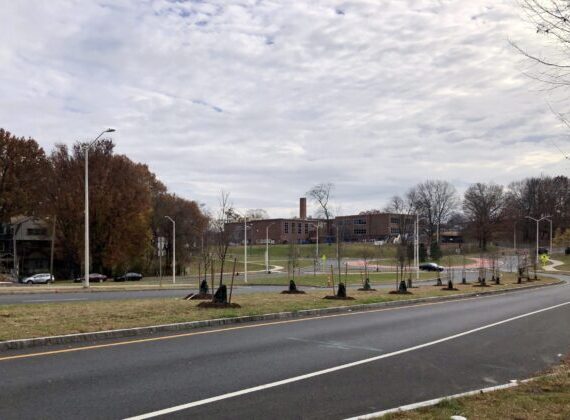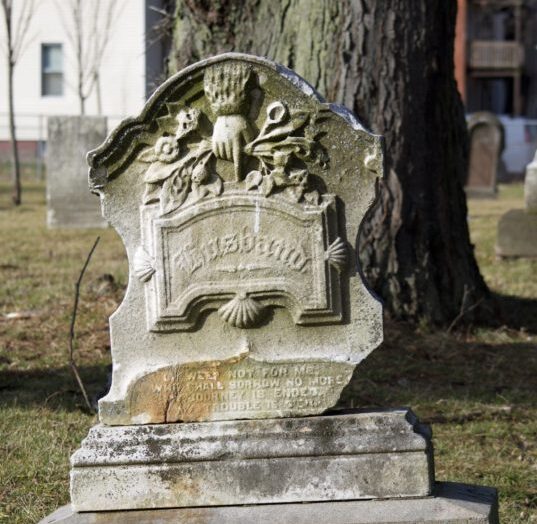Before the charter revision commission public hearing was called to order, I overheard a few people on the commission discussing last week’s meeting amongst themselves. One said that “last week was a dog and pony show for the electeds” and that the commission had not heard from the public yet. At 6pm there were only five people besides myself in the audience, ten of the commission present, and no microphone hooked up for public comment. Two more members of the commission arrived an hour into the meeting, which was only a few minutes before it ended.
Ed Vargas (on the commission) commented that he would want to introduce the idea of publicly financed municipal elections. During the meeting, others voiced their concerns about how much would-be politicians are spending on their campaigns.
Four members of the public spoke during the hour-long meeting. Three of the four proposed ideas that were clearly in favor of strengthening checks and balances in city government, and one had some overtones of that, though the focus was elsewhere.
Because I devoted so much virtual ink to the politicians who spoke last week, I think it’s just to extend the same courtesy to residents who are not sitting on City Council. I am withholding their names, though I am sure that in official records, they will be transcribed.
Resident #1: He had five items to address regarding the charter revision.
1. City Council should be elected using a hybrid/district system with the majority elected by district. He acknowledged that minority [party, not racial/ethnic minority] representation is important. He also favored staggered terms.
2. City Council terms should be reduced to two years.
3. The Board of Education should be entirely elected with staggered terms.
4. Department heads who report directly to the mayor, such as the chief of police, should not require City Council approval. He argued that the City Council could obstruct appointments for no reason besides politics.
5. Statement on the right for city employee and retiree representatives to vote. I was not clear on what his point was. This matter, I think, needed more information than he provided.
Marquita McElya (on the commission) questioned this resident’s logic (point #4), citing the need for checks and balances. The resident responded by saying that “government is politics” and that the “check is ultimately in the next election” when the mayor can be “thrown out.”
Resident #2: He said that the charter should not be “tinkered with” every time something comes up, but then had a number of items that he would adjust. One of these things was regarding Corporation Counsel. He said that the “charter needs to have a provision for the Corporation Counsel to be separate from the mayor’s office” and that the mayor should have his own counsel. He alluded to City Council meetings in which, due to “friction,” certain members had trouble getting legal advice from Corporation Counsel. He followed by saying that “we need elected officials that are going to be beholden to the electorate.” He said that he “would like to see impeachment powers given to” members of the City Council. He advocated for a hybrid system in which Hartford would be split into four or five districts. He also said that all Board of Education members should be elected, not appointed.
Resident #3: He claimed that how voting happens in the city is an “elitist process,” as most of the voted electorate come from the West End or the South End. He then extended this criticism to the structure of the Charter Revision Commission, who he remarked also primarily came from those areas of Hartford. Heather Brandon has the breakdown on her blog of where the members live, but to give an overview, two are from 06103 (downtown), two are from 06106 (Parkville, Behind the Rocks, Frog Hollow, Barry Square*, South Green, and Sheldon-Charter Oak neighborhoods), one is from 06112 (Blue Hills, North East, Upper Albany, and Clay Arsenal neighborhoods), one is from 06114 (South End, Barry Square, South West, South Green, South Meadows, and Sheldon-Charter Oak), one is from 06120 (covers Clay-Arsenal, North East, and North Meadows neighborhoods), and six are from 06105 (West End and Asylum Hill neighborhoods).
This resident claimed that right now, the voting process is exclusionary and that “this city has not used all of its expertise […] or all of its people that it represents.” It was difficult to glean the resident’s charter-related concerns from the rest of his concerns, as he brought up many valuable, but irrelevant points. I wholeheartedly agree with him that “we have to deal with the people who are here” and “stop worrying about attracting people from the suburbs,” but as far as I could tell, this had nothing to do with the charter revision issue. On topic, he argued that “the mayor should have his own counsel” and that the Board of Education should be elected, and it should follow district representation. He also haphazardly threw out the idea that if XYZ are happening, “then we need to get rid of government because we’re not serving the people.” Again, I am not disagreeing, but from a rhetorical perspective, rambling and not connecting-the-dots on important matters such as this can obscure one’s ideas and weaken one’s case.
Resident #4: He was more to-the-point, though not always clear either. He started by saying that there should be more political diversity. He had five points:
1. He wants a larger council (18-21 members!) and elected on a hybrid system. He dismissed possible gripes about how much this would cost, saying that “this is the most important thing we spend our money on.”
2. He had an unclear remark about a bond referendum.
3. He had another unclear remark regarding an ethics person.
4. Corporation Counsel needs to serve the people of Hartford.
5. He is in favor of the mayor taking some role in the Board of Education, but thinks that the Board of Education should be elected using a hybrid system.
He said that he favored checks and balances, and I wish that he had spoke louder and in more depth. His second and third points did not make sense to me, not because they were illogical, but because he did not provide adequate background information. People should not assume that everyone, including those they are addressing, have been paying attention to all of Hartford’s issues in the past 25 years. I don’t know the background of all commission members, but a few are relative newcomers to the city, and for them to make wise choices, it would be helpful, I think, if they were given adequate information. This would at least give them a starting point so that they could conduct their own research later.
Four people signed up to speak publicly. Why so few? Was it the fear of inclement weather? Were people not notified about this hearing? Were they given misinformation regarding the time and location? Were people who arrived last week to speak too discouraged to return last night? Did people assume others would speak on their behalf? Do Hartford residents simply not care about the charter?
The next meeting is scheduled for January 8, 2009. The public may attend any of the City Charter Revision Commission Meetings, though they are not all intended as public hearings.
*Some neighborhoods are listed twice because they are split between two zip codes.


